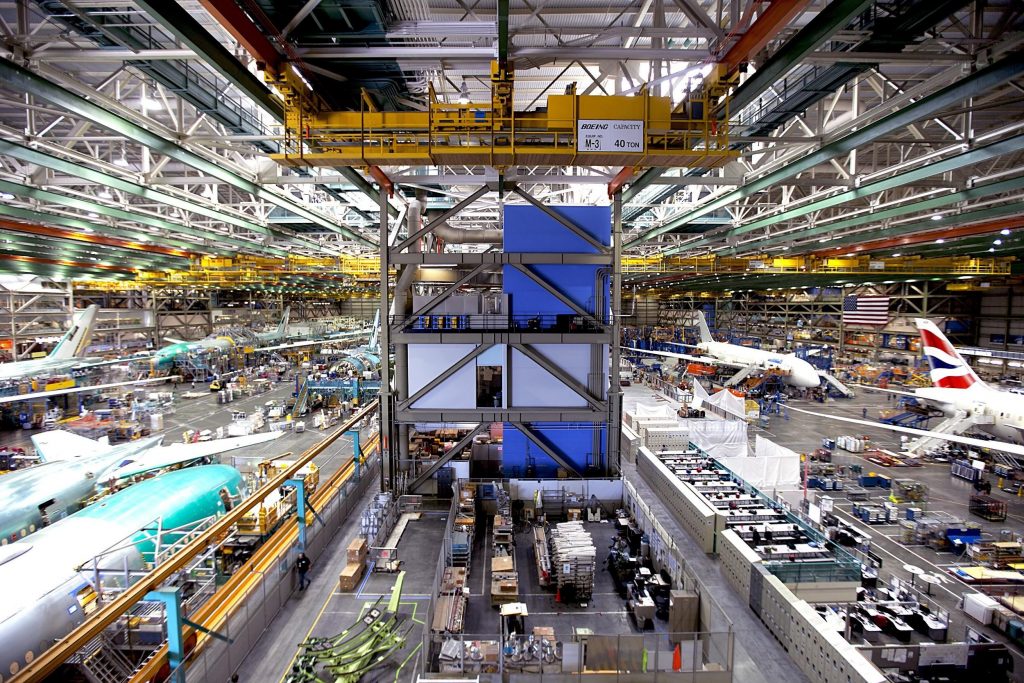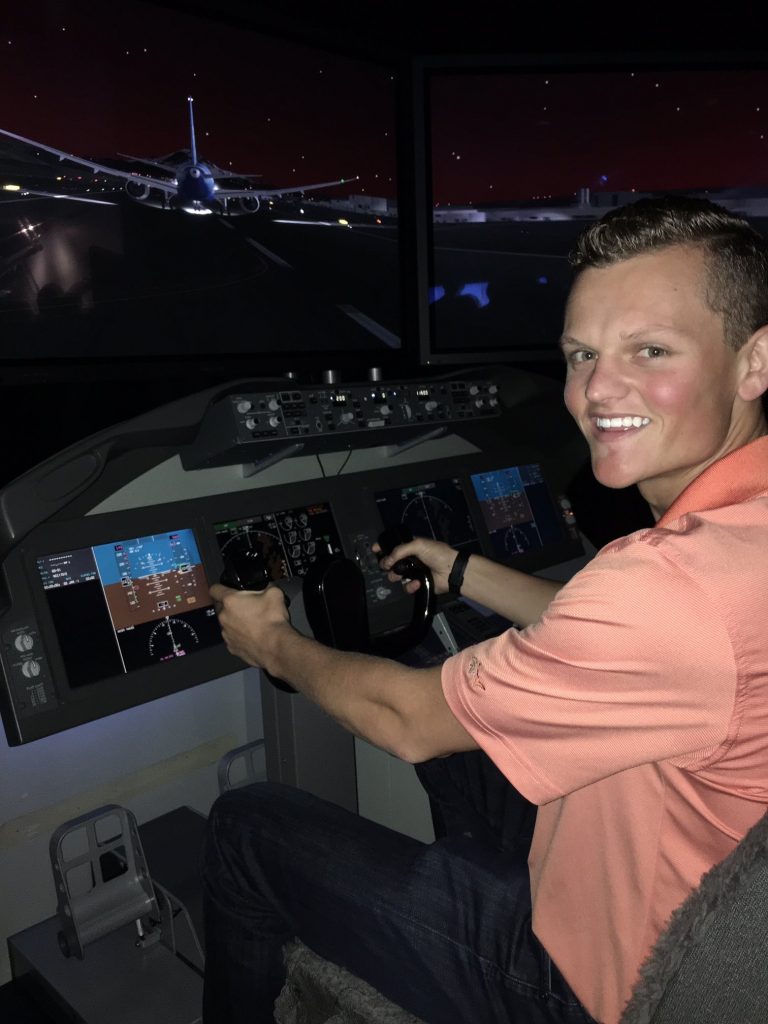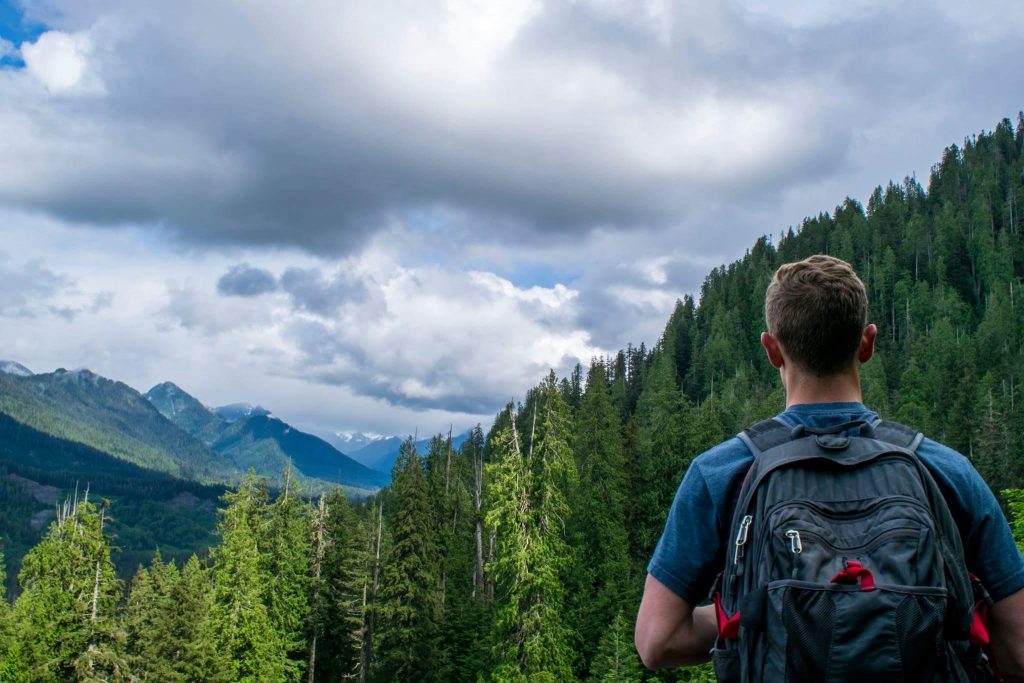InTrans / Oct 02, 2016
STEM on: An internship with Boeing
Go! Magazine
 posted on October 3, 2016
posted on October 3, 2016
Tyler Oviatt is a senior industrial engineering student at Iowa State University (ISU) in Ames, Iowa. Tyler never knew he wanted to be an engineer. But as life would have it, Tyler would grow up and network his way to the center of the engineering world. Tyler pursued an internship with Boeing—a multinational corporation that designs, manufactures, and sells airplanes—and spent this past summer working for them in Seattle, Washington.
Let’s start from the beginning, what made you want to be an engineer? How did you get started?
I’ve always excelled in math and science, it was just one of those things. I liked it. I got it. Since I was excelling in some of those courses, I took AP Calculus in high school, because I originally wanted to be a doctor. I took a lot of hard classes to prepare myself for medical school. But then, I went and talked with a lady named Ramona Barber. She’s well known in Iowa; she sits down with high school students and conducts aptitude tests. Based on the conversations we had, she said that maybe being a doctor wasn’t the right career choice for me. Instead, she told me to look into engineering and provided me with a list of potential schools.
I asked myself, “What is engineering?”
So, I quit baseball to attend an engineering camp the following summer. I wanted to answer that question. The camp was at Missouri S&T (Missouri University of Science and Technology). I don’t remember what I learned exactly, but I got my foot in the door. Then, I went to an engineering camp at ISU. I enjoyed the camps, but I still didn’t fully understand what it meant to be an “engineer.”
I ended up choosing Iowa State University and engineering for my college career. At orientation, I was exposed to all different types of engineering. I went into mechanical engineering, but looking back, I wish I would have gone in as “undecided,” so I had more time to learn about the different engineering fields. I studied mechanical engineering for two years, but I didn’t enjoy it, even though I was getting good grades. I finally got to the point where I didn’t know if I was ever going to enjoy a class—that type of engineering just wasn’t for me. That’s when I switched to industrial engineering, which a lot of people end up doing, actually, and I thought it was awesome. I started really enjoying going to class.
How did you work your way up from there, from industrial engineering to your internship with Boeing?
Industrial engineering is about improving processes and making things more efficient by looking at systems as a whole. So, I ended up going to Omaha, Nebraska, to intern as a pepperoni factory. It’s called a “dry sausage facility,” and they make salami and other things. Once they cook the sausage, it sits in the dry room for 10 days or so—that’s why it’s called dry sausage. The FDA (Food and Drug Administration) requires a certain amount of moisture in these meats, so we needed to get the sausage out of the dry room at the optimal time. It might not be what you’d expect of an engineering job, but I did more engineering work there than I could have possibly imagined. But after that, I switched my major a few times, which resulted in an extra semester of classes. During that time, I had my internship at Boeing.

So, tell me about working for Boeing.
My internship was at Boeing in Seattle, Washington. Boeing has five or six facilities in Seattle. I played an interesting role. A lot of people who work for Boeing end up working directly with the airplanes—whether it be a Boeing 737, 777, or 787. But I didn’t work with the planes directly. I was in supply chain management interning as an industrial engineer. The thing is, roughly 60 percent of the parts that go into these airplanes come from many different suppliers. Some of the questions I had to help answer were: “How do we ensure that every supplier is going to be able to get us the product we need on time?” “How can we make things more efficient?” How do we cut costs?” To answer these questions, sometimes that meant visiting those suppliers in person and looking at their processes. That was a cool opportunity. I got to travel to California and visit suppliers as a Boeing employee.
I took away a lot of things from my time at Boeing. But ultimately, I learned that you need to be able to communicate well. You could be the smartest person in the room, but if you can’t explain the research, the problem, you won’t get far. It could be as simple as putting together a Powerpoint presentation, but if you can’t do it, and do it well, you will have a hard time being an engineer. Sometimes it’s not all about the science.

Do you have any advice for future engineering students, when it comes to getting an internship someday?
As far as getting internships, it relies so much on networking and building relationships. That’s how I got started at Boeing. I went to an “info session” at ISU—just to see what it was all about, and, as it turned out, there were only two other engineering students in the room. Of the three of us, one didn’t make the GPA requirement and the other ended up leaving. I ended up sitting there alone with the recruiter for like 50 minutes. And she wasn’t just a recruiter, she was an engineer at Boeing. I asked her two questions: “How can I be successful” and “How can I come work for Boeing?” This was before my first internship, so she told me that I had the grades they were looking for, but beyond that, getting some sort of experience in manufacturing would play a huge role in landing a position at Boeing. That’s why I looked for something like my internship with the pepperoni factory. Then, I made sure to follow up, sending her a message via email. Always follow up! Later, when I met with Boeing at an career fair, they knew exactly who I was.
How do you feel about your decision to become an engineer?
I’m extremely glad I went into engineering; it’s taught me so much. The key to any engineering career is problem-solving. If you can do that, there’s a good chance you’ll be a successful engineer. Sometimes, I wish I would have gone in as “undecided,” just to see what other opportunities were out there—like computer engineering or transportation engineering—but overall I couldn’t be happier with where I’ve been and where I’m going.

Related links
Why career fairs matter: https://www.youtube.com/watch?v=zteW-h1rHN0&feature=youtu.be
By Hannah Postlethwait, Go! Staff Writer